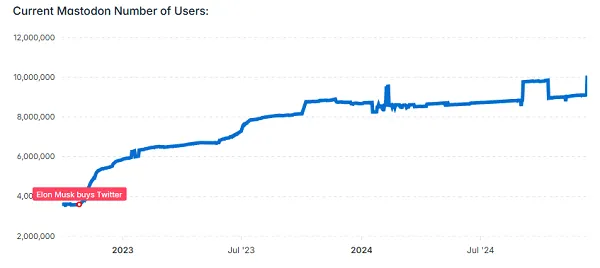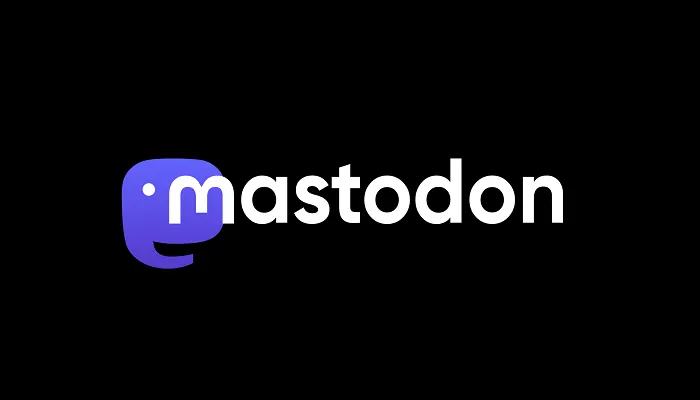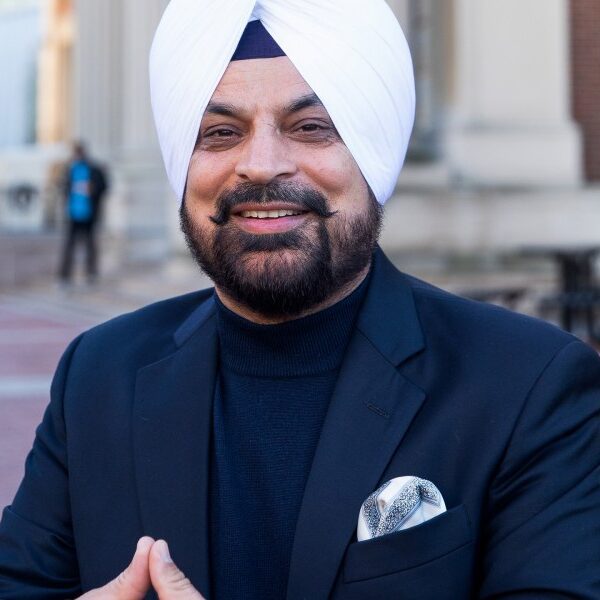While Threads has emerged as a key Twitter alternative, and Bluesky is gaining traction as an alternative to that, Mastodon, which saw a surge in interest following Elon Musk’s Twitter purchase, has been left behind, a sort of afterthought of the broader decentralized social push.
But it’s still going, and it’s still serving around a million or so active users, while its membership numbers are rising, now up to 10 million members.

As you can see, the platform has seen another boost in membership in recent times, and it could gain traction again, if there’s a level of backlash to Meta’s latest moderation changes, as many expect.
But it’s a lesser consideration at this stage, though it remains the best representation of the decentralized social push, and staying true to its mission to enable more control and data ownership for users.
And today, Mastodon has taken steps to ensure that it maintains that independence, and assurance, by transferring ownership of the app to a non-profit group.
As per Mastodon:
“When founder Eugen Rochko started working on Mastodon, his focus was on creating the code and conditions for the kind of social media he envisioned. The legal setup was a means to an end, a quick fix to allow him to continue operations. From the start, he declared that Mastodon would not be for sale and would be free of the control of a single wealthy individual, and he could ensure that because he was the person in control, the only ultimate decision-maker.”
In line with this ethos, ownership of the platform will be transferred to a new non-profit organization, in order to ensure that the app cannot be owned or controlled by a single individual.
“The next 6 months will see the transformation of the Mastodon structures, shifting away from the early days’ single-person ownership and enshrining the envisioned independence in a dedicated European not-for-profit entity.”
The change will also see Mastodon CEO Eugen Rochko move into a different role focused on product strategy.
The move shows that Mastodon is committed to its decentralized roots, which dictate that the app must stay out of any form of centralized control, in order to avoid the pitfalls of other, larger social apps.
Which is what the decentralized social movement was founded upon, and is also why decentralization supporters have been uneasy about Threads, which is owned by Meta, integrating fediverse connection, because the whole decentralized/fediverse movement was designed to counter the actions of Meta and their ilk.
But Threads has only partially committed to decentralized protocols, in favor of ease of use, while Bluesky has also integrated decentralized connectivity elements, but has also leaned into more streamlined, traditional connection methods to maximize take-up.
Which is a key impediment for the decentralized social push, that in order to facilitate such, it needs to give users more control over the servers they connect through, and the algorithms that define their experience. Which puts more control into each users’ hands, but it also means more options, more research, and more time between signing up for an app and establishing your preferences.
And most people just don’t care that much about such for it to catch on.
Many users have been confused by Mastodon’s more complex sign-up process, which offers specific customization, but can be bewildering to the average user.
And most just want to download an app and start scrolling, which will always be an impediment to decentralized social take-up.
But Mastodon remains committed to its principles, and this is another step in that direction, ensuring independence and transparency, and control, for all users.
It’s an admirable move, but it’s hard to see how Mastodon becomes a bigger player, without a significant increase in broader digital literacy.














